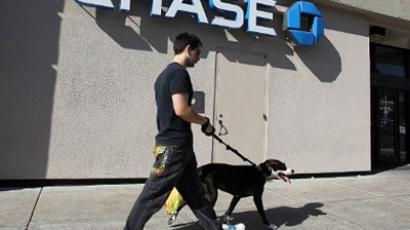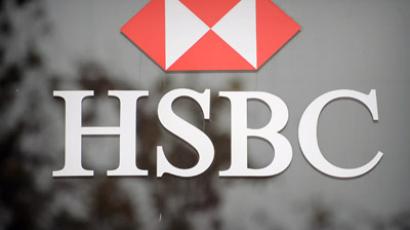UK Treasury insiders accused of complicity in tax-dodging schemes

The ‘Big Four’ UK accountancy firms have been accused of wielding “undue influence” over UK tax law, and of using insider knowledge from the UK Treasury to circumvent the complexities of the country’s tax laws and helping their clients do the same.
Margaret Hodge MP, chair of the Public Accounts committee (PAC),
said there was a “ridiculous conflict of interest,”
criticizing the involvement of the companies in shaping UK tax
law.
Firms have been seconding staff to the Treasury to work as advisers
on technical issues relating to legislation. The staffers then
return to their respective companies with a trove of insider
information.
“We are concerned that the very people who provide this advice
then go on to advise their clients how to use those laws to avoid
tax,” criticized the 56-page expose, titled ‘Tax avoidance: The role of large accountancy
firms,’ which was released on Friday. It demonstrated deep
concern over the close connection between the companies and Her
Majesty’s Revenue and Customs (HMRC).
The ‘Big Four’ companies involved are Pricewaterhouse Coopers,
Deloitte, KPMG and Ernst & Young. Pricewaterhouse Coopers and
KPMG alone control some 50 percent of the audit market for the
world’s multinational companies, and the combined 2012 revenues of
the four firms rose to an all-time high of $110 billion, up 6
percent from 2011, according to a ‘Big Four’ firm performance report published this January.
KPMG’s advertises its services in a document titled ‘Patent Box: What’s in it for You?’ that boasts
of the company’s ability to help clients reduce tax payments, and
saying that they “enjoy a very strong working relationship with
HMRC officials responsible for implementing and operating the
regime.”
The company reiterates later in the document that “Members of
our team have worked closely with the UK Treasury and HMRC as the
proposals have developed.”
The PAC was highly critical of the practices that allowed
stakeholders to be so involved in the writing of a law, “that
they know how to exploit it as a tax avoidance scheme.”
Numerous flaws in the UK tax system were detailed in the report,
including its complexity. The report also emphasized that there is
no clear line drawn between acceptable tax planning and calculated
tax avoidance.
“They are still devising complex schemes that look artificial
and their appetite for risk appears high – selling schemes that
they consider only have a 50 percent chance of being upheld in
court,” the report said.
The insider knowledge of the ‘Big Four’ gives them an advantage,
fueling additional criticism in the report that it is
“inappropriate for individuals from firms to advise on tax law
and then devise ways to avoid the tax.”
HMRC has also been criticized for being at the mercy of the four
companies itself: “HMRC is not able to defend the public
interest effectively when its resources are more limited than those
enjoyed by the big four firms,” the report stated, adding that
it was not just financial resources that the government
tax-collection body lacked.
“In the area of transfer pricing alone, there are four times as
many staff working for the four firms than for HMRC,” the
report said.
HMRC has repeatedly been caught up in scandals surrounding its
weakness in the face of large corporations. In 2010, phone company
Vodafone reached a deal with HMRC, exempting it from its avoidance
of a £6 billion tax bill in 2010, for which it was previously
targeted by protesters. The company was later found to have paid no
corporate tax in 2011.
The committee warned that HMRC was engaged in a “battle it
cannot win.”














